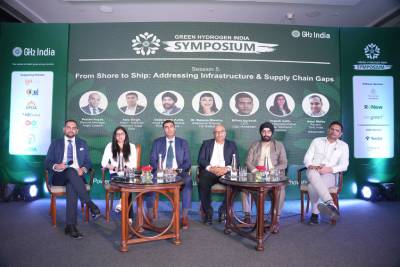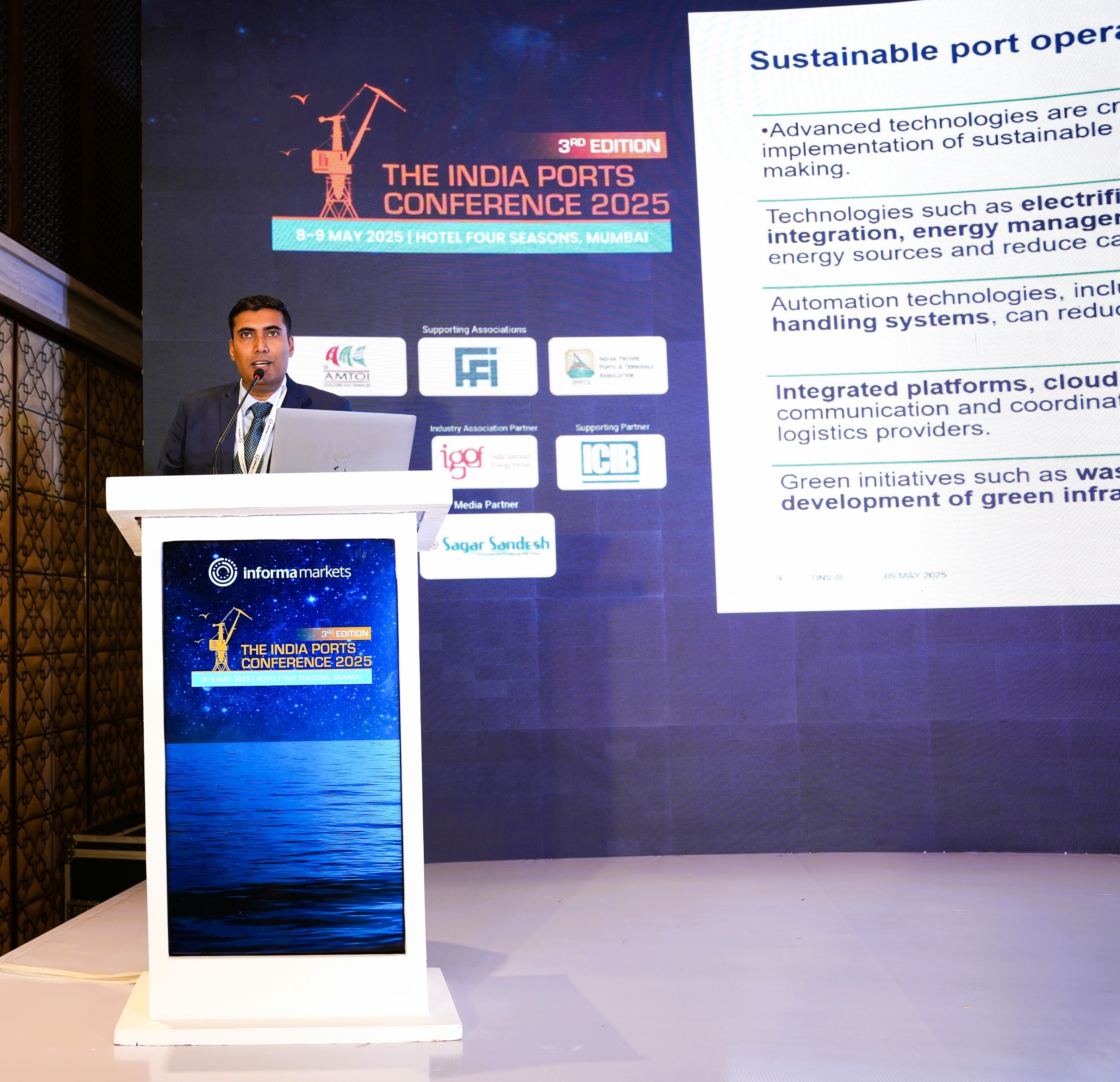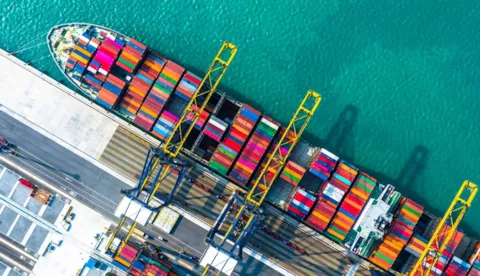DNV: Enabling India's green maritime ambitions
DNV recently shared expert insights at two major industry events in India, spotlighting the critical role of ports in enabling a sustainable maritime future.
As India charts an ambitious course toward maritime sustainability, DNV remains a key contributor to the national dialogue on clean fuels, green ports, and industry innovation. Our recent participation in two key events—the Green Hydrogen India Symposium and the India Ports Conference 2025—showcased how DNV’s global expertise is helping to shape practical, forward-looking solutions for the maritime sector.
Spotlight on green ports at the Green Hydrogen India Symposium

DNV took part in the Green Hydrogen India Symposium in New Delhi back in April 2025, joining a panel titled “From Shore to Ship: Addressing Infrastructure & Supply Chain Gaps.” The discussion focused on enabling a smoother transition to green maritime practices, with Ajay Kumar Singh, Head of Section – Maritime Advisory DNV, exploring the critical enablers needed to develop green ports in the country. From renewable energy integration and shore power systems to alternative fuel supply and bunkering infrastructure (such as bio-methanol and hydrogen derivatives), the conversation emphasized how future-ready ports can become the cornerstone of maritime decarbonization.
Key themes included:
- Integrating renewable energy into port infrastructure
- Building shore power and alternative fuel bunkering capabilities
- Enhancing port resilience through strategic planning and cross-sector collaboration
The panel also delved into how upcoming international regulations—such as those expected from MEPC 83—could impact India’s maritime stakeholders and how industry players can stay ahead through proactive planning.
Advancing port sustainability at the India Ports Conference 2025

On May 9th, Ajay Kumar Singh once again represented DNV at a key industry platform—this time at the India Ports Conference 2025 in Mumbai, organized by Informa Markets. In his presentation titled “Port Energy and Sustainability,” he underscored the pivotal role of ports in the global energy transition—from enabling alternative fuel bunkering infrastructure to influencing investment decisions around zero-emission shipping technologies.
Ajay explored how technologies such as port equipment electrification, electric vehicles, renewable energy integration, energy management systems, and intelligent grid solutions are helping ports transition to cleaner energy sources, reduce carbon emissions, and improve operational efficiency and turnaround times.
Drawing on DNV’s project experience and global case studies, his presentation addressed:
- Key drivers enabling sustainable port operations
- The strategic role of ports in advancing green shipping corridors
- Technical and regulatory challenges related to onshore power supply, onboard carbon capture, and green fuel infrastructure
He emphasized that ports are no longer just logistics hubs—they are becoming central to the maritime decarbonization journey. Beyond supporting green fuel infrastructure, forward-looking ports are taking the lead in digitalization and automation. Ajay pointed to successful implementations in countries like Singapore, Norway, Korea, and the Netherlands as models for India’s transformation.
A unified vision for India's maritime future
Both forums reaffirmed that ports are pivotal to unlocking a sustainable maritime future. Achieving India’s maritime vision will require strong collaboration across the entire value chain—from government agencies and port authorities to energy providers, shipping companies, and technology innovators.
“As India advances its maritime decarbonization agenda, it's clear that robust infrastructure, strategic foresight, and policy coherence will be the pillars of long-term success,” said Ajay Kumar Singh, Head of Section - Maritime Advisory, DNV.
Subscribe to stay connected with DNV and get the latest insights as we support India’s transition to a cleaner, smarter maritime future.
4/22/2025 2:31:00 PM

